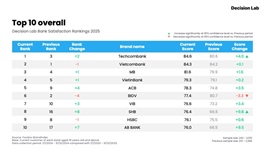Complete legal framework needed to settle bad debts
Complete legal framework needed to settle bad debts
Despite efforts of banks in dealing with bad debts, the debts increased by about VNĐ34 trillion in the first two months of 2025, while only about VNĐ15 trillion of the debts were settled by banks through risk provisions.

A view of the event. Photo thoibaonganhang.vn |
A view of the event. Photo thoibaonganhang.vn
HÀ NỘI — As the resolution on piloting bad debt settlement expired at the end of last year, it is an urgent requirement to complete a legal framework to handle such debts, to enable the freeing up of large capital resources that are stuck in the banking system, experts said.
At an event on creating a synchronous legal framework for handling bad debt, held in Hà Nội yesterday, Dr Lê Duy Bình, Director of economic consulting firm Economica Vietnam, said that the total amount of outstanding loans of the entire economy is currently at around VNĐ4 quadrillion (US$154 billion). If the bad debt ratio is around 6-7 per cent, it means more than VNĐ1 quadrillion is not being used effectively and is becoming ‘dead’ capital.
More importantly, Bình noted, the harm does not stop at that huge number, as not only the capital is frozen, but the accompanying mortgaged assets are also not exploited due to legal entanglements.
Vice Chairman and General Secretary of the Vietnam Banks Association Nguyễn Quốc Hùng said it was necessary to amend the Law on Credit Institutions promptly to remove the bottleneck in handling bad debts, as they have been rising significantly.
Hùng said despite efforts of banks in dealing with bad debts, the debts increased by about VNĐ34 trillion in the first two months of 2025, while only about VNĐ15 trillion of the debts were settled by banks through risk provisions.
According to Hùng, debt repayment awareness of borrowers was poor. Only 3-6 per cent out of total bad debts were paid by borrowers, while banks had to use up to 48 per cent of their reserve funds to handle the bad debts. The high provision rates have greatly affected the business results of banks and reduced bank credit pouring for businesses as bank cash flows were stuck and cannot circulate.
Hùng attributed the restriction in dealing with bad debts to a lack of an adequate and consistent legal corridor on handling collateral assets and bad debts. Specifically, Resolution 42/2017/QH14 on piloting bad debt settlement expired at the end of last year, but the Law on Credit Institutions does not stipulate the seizure of collateral during the process of bad debt settlement of credit institutions. Therefore, banks are facing many difficulties and cannot handle bad debts.
Hùng believes that amending and supplementing a number of articles of the Law on Credit Institutions would not only create conditions for banks to settle bad debts, but would also be a measure to raise awareness and responsibility of borrowers in paying debts, and eliminating the borrowers’ mindset of finding every way not to pay debts and not to hand over collateral.
Banking expert Cấn Văn Lực also said that it was regrettable that the Law on Credit Institutions, which has taken effect since July last year, had not included some provisions in Resolution 42, such as the right to seize collateral that affect the ability to handle bad debts of credit institutions. Therefore, the amendment of the law needed to fill the legal gap, ensure consistency and uniformity between related laws, remove obstacles to unblock resources, especially in the context of increasing bad debts.
According to Hùng, the VNBA suggests to include regulations on the right to seize and return collateral as evidence in criminal cases and administrative violations in the draft amended law to submit to the National Assembly (NA) for consideration and approval at the NA’s meeting next month.
- 07:51 22/04/2025




























